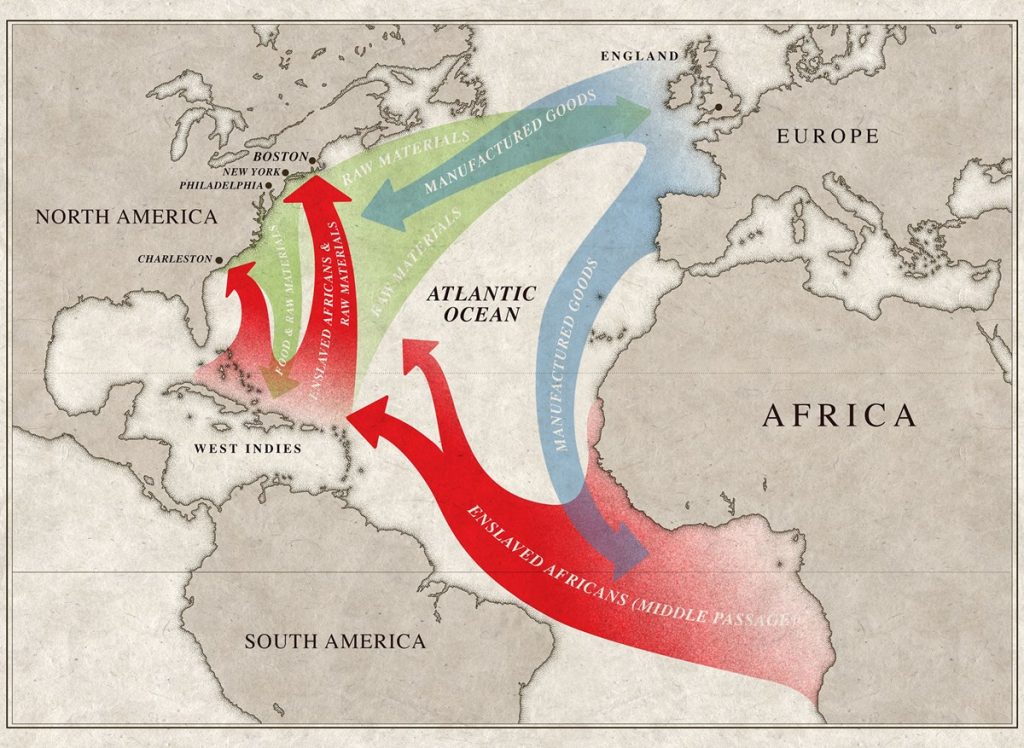The Middle Passage
The middle passage is a term used to describe the forced voyage of enslaved Africans across the Atlantic Ocean to the new continents of North America, South America, and Europe. The grossly overcrowded sailing ships made the voyages unbearable for the African women, men, and children. The middle passage came to be as called because it was the middle leg of a three-part voyage that began and ended in overseas continents (“the middle passage”). Africans were traded for goods such as clothes, firearms, and gunpowder. The first voyage would arrive at the African coast carrying the goods. Upon landing on the slave coast, the goods would be exchanged for Africans. The slaves were exchanged for sugar, tobacco, and firearms, and the ship would set sail for the Americas. The slaves were restrained with shackles and irons on their legs and hands. They were confined together on the loathsome decks so closely knit together that the conditions became unbearable for human survival (Equiano). Some preferred death over life and threw themselves to the sea. Diseases fogged the lower deck environments, and many did not make it. All these elements made up the middle passage.
Upon the colonization of the Americas by the Europeans, the dynamics brought a lot of changes in the political, economic, and social settings of such countries. Many of these changes had a great impact that crossed the continent to include Africa. The needs of the new elites determined how land and laborers in the new world were exploited. The shift in trends in agriculture, such as plantation farming, became necessary that enough labor was available to cater to the needs of the new world. The Europeans came with diseases that wiped out most indigenous populations; therefore, local labor was insufficient. Thus, the Europeans looked into Africa for new sources of workers. The Africans became convenient because they were cheaply available, and they came in large numbers. Africans were also largely resistant the European diseases, and they were also unfamiliar with their new environments; therefore, they made it easier to enslave them.
The Europeans benefitted the most because years after slavery was abolished, Africans faced discrimination and racism for the longest time because they had been viewed as outsiders who could not fit within the new superior society of whites. Capitalism encourages the persecution of minorities because there are no direct state rules that direct how individuals should be treated. Capitalism encourages exploitation and extortion of human labor that, in the end, the consequences are the exploitation of human life, leading to so much misery. Capitalism also favors a group and rejects others creating a society of inequalities.







